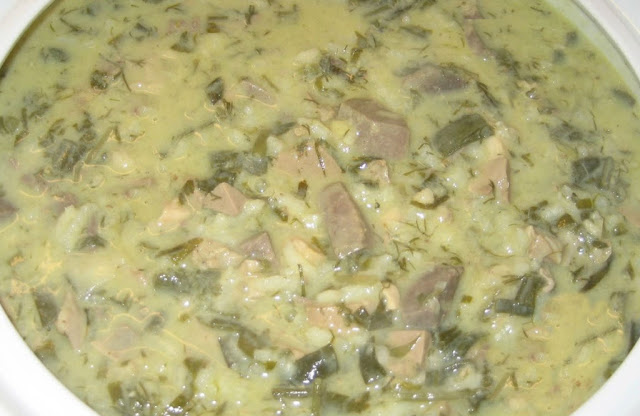Discover the significance of Magiritsa, the cherished soup enjoyed by Greek Orthodox believers after their midnight Easter Divine Liturgy. It marks the beginning of the Easter family feast, especially for those who've observed the 40-day fast of Greek Orthodox Great Lent leading up to Easter.
Intriguingly, the creators of this ancient soup, lacking modern nutritional knowledge, intuitively crafted a nourishing dish perfectly suited for those who've fasted for forty days.
Throughout Lent, meat and dairy are off the menu, leading to a vegetarian diet often deficient in iron, especially in the past when supplements weren't available.
Magiritsa emerges as the ultimate post-fast dish. This quintessential Greek Easter soup features the Paschal lamb's entrails (heart, liver, spleen, lungs, and intestines), combined with spring onions, dill, rice, olive oil, lemon juice, egg yolks, corn flour, lettuce, vinegar, and seasoning.
Serving 8, this Greek Easter tradition requires approximately 1.5 hours to prepare and 50 minutes to cook. Welcome the resurrection feast with Magiritsa's flavorful, nutrient-rich goodness.
Magiritsa Recipe - Ingredients
- 1 kg lamb offal (heart, liver, lungs, and other organs)
- intestines from 1 lamb (optional)
- 8 spring onions, cut.
- ½ bunch of dill
- ½ teacup of rice washed and drained
- Greek olive oil
- The juice of 2 lemons
- 2 egg yolks
- 2 tablespoons of corn flour
- 1 romaine lettuce, cut
- Vinegar
- Salt
- Pepper
Magiritsa Recipe - How to Make
- Start this traditional Greek Easter soup by cleaning and washing well the lamb offal with fresh water.
- Take a pot, fill it with water, add some vinegar, and bring it to a boil over high temperature.
- Add the lamb offal and boil for around five minutes.
- Remove the lamb offal from the pot, and allow them to drain. Cut them into small pieces.
- Take a large pot, add some olive oil, the chopped onions, and the cut offal, and heat over medium temperature.
- Sauté for 5-6 minutes, until browned.
- Add 2-3 glasses of hot water, dill, salt, and pepper.
- Simmer for about 20 minutes.
- Add the rice and some hot water if needed.
- Cover the pot and simmer the magiritsa, until the rice is ready. Mix and make sure the soup has enough juice.
- Dissolve the corn flour in some cold water.
- Take a bowl and beat the egg yolks. Add the lemon juice and the dissolved corn flour and continue mixing the ingredients.
- Add one cup of broth from the magiritsa soup to the egg yolk mixture.
- Pour the mixture into the pot and add the chopped lettuce.
- Stir slowly and allow the soup to rest for 10 minutes.
- Serve the magiritsa while still warm.
